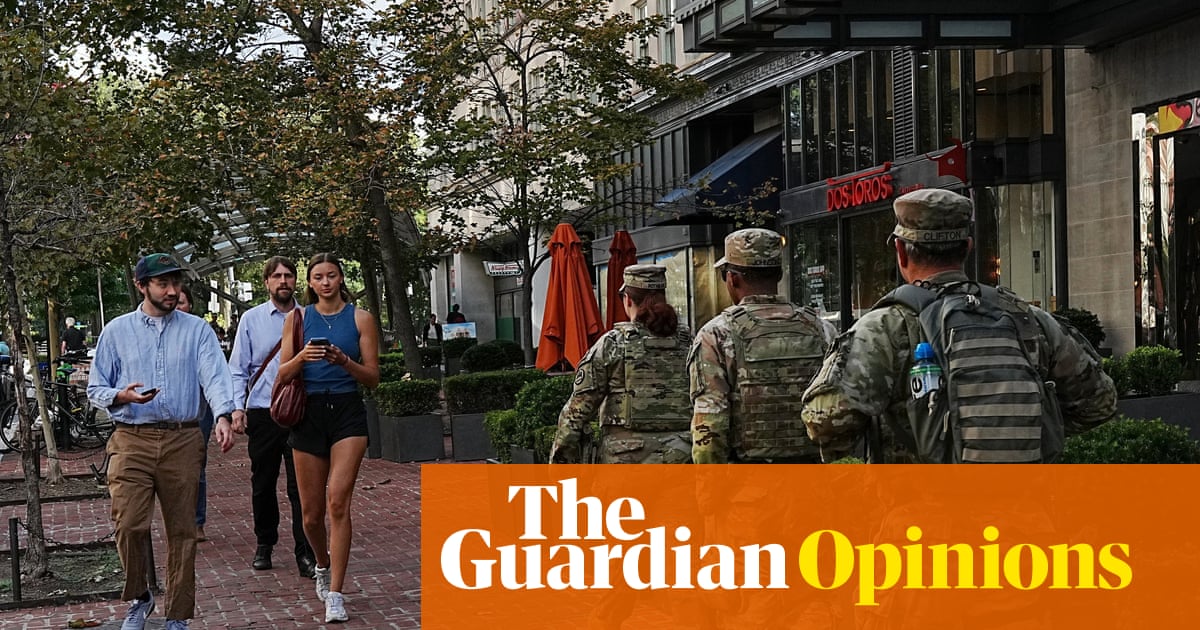The world during Donald Trump’s second presidency has entered a period of danger with “certain similarities to the 30s”, according to Mitch McConnell, the veteran Republican former Senate leader.
McConnell made the comments primarily in reference to tariffs and foreign affairs, in a wide-ranging interview with the Lexington Herald-Leader published on Wednesday as he prepares to enter his final year in office.
Calling it “the most dangerous period since before world war two”, McConnell was openly critical of the Trump administration’s fixation with trade tariffs, which he likened to the isolationist policies of the US in the 1930s that historians say hastened a global depression that paved the path to conflict.
But while decrying the lack of US preparedness to confront authoritarian regimes abroad, the 83-year-old McConnell – a senator since 1985 and leader of Republicans in the chamber for a record 18 years until he stood down earlier this year, then announced his upcoming retirement – did not discuss the Trump administration’s own moves towards authoritarianism.
He also glossed over his own responsibility for handing Trump so much power. As majority leader, McConnell maneuvered to deny Barack Obama a rightful supreme court pick, and rushed to give Trump another in the final weeks of his first term in 2020. It made McConnell the architect of the current ultraconservative 6-3 majority on a panel that critics say has been overly loyal to Trump, not least last year’s astonishing ruling giving him immunity for criminal acts.
In the interview, McConnell said he had been focusing on “defense and foreign policy” in the months since returning to the Senate’s back benches, and had become worried about the direction he believed Trump’s “make America great again” (Maga) trade policies were leading the world.
“I think this is the most dangerous period since before world war two. There’s certain similarities right now to the 30s,” he said.
“[Then president] Herbert Hoover signed the Smoot-Hawley tariff bill in 1930, widely believed by historians and economists to have taken the depression worldwide. Those who were totally anxious to stay out of all of what was going on in Europe were called ‘America First’. Sound familiar?
“So what do we have today? North Korea, China, Russia, Iran and Iran’s proxies. They’re very different kinds of countries, but they have one thing in common: They hate us.”
The interview was conducted before this week’s gathering in Beijing of world leaders largely hostile to the US, a meeting of authoritarians including Russia’s Vladimir Putin, China’s Xi Jinping and North Korea’s Kim Jong-un that some analysts see as an unprecedented redrawing of the global balance of power.
McConnell, however, believes the US should already have been readying itself to meet the challenges posed by the rise of autocrats in other nations, but had not done so. He cited, indirectly, Trump’s failure to handle effectively Russia’s invasion of Ukraine, the biggest conflict in Europe since the second world war, now well into its fourth year, on Nato’s border.
“When you talk about preparedness, we’re not prepared like we should be,” he said.
“With regard to Ukraine, what we need to do is avoid the headline at the end of the war, ‘Russia wins, America loses.’ It has huge worldwide implications.”
But he said he also saw financial benefits for the US in committing more than $130bn in support for Ukraine’s military defense and humanitarian aid, while Trump has flip-flopped on the issue.
“For those who are concerned about the money, I think it’s important to remember that about half of the money was spent in this country, including in Kentucky, [with] 38 states modernizing our own industrial bases,” McConnell said.
after newsletter promotion
“We’ve sent older weapons to Ukraine.”
After leaving office in 2021, Trump told a donors’ conference that McConnell was “a dumb son of a bitch”, and had previously nicknamed him “Old Crow”. In the Herald-Leader interview, McConnell rejected the opportunity to fire back.
“My own view about the leader job, whether you’re the president or the leader of one of the parties, is the Ronald Reagan quote that I thought made the most sense. He had what he called the 11th commandment: ‘Do not speak ill of another Republican,’” he said.
Yet McConnell did appear sensitive to a suggestion he was standing down because he had grown unpopular in Kentucky, amplified by the hostility of Nate Morris, the Republican businessman and Trump ultra-loyalist tipped to succeed him as senator. “I’m a Trump guy, not a McConnell boy,” Morris has said.
McConnell said his record spoke for him. “These suggestions about who’s popular and who isn’t irritate the hell out of me, because when you get into the leadership position, you get beat up,” he said.
“How do you judge popularity? Seven victories in Kentucky, nine victories in the [Senate Republican] conference.”
Asked what he thought his legacy would be, McConnell said he was most proud of the 2004 Kentucky tobacco buyout, which paid the state’s farmers to abandon their crops. “At the federal level it would be the courts,” he added.
He declined an invitation to say whether he thought the US was in a better position now than before the Trump era. “I’m not sure enough time has passed to start evaluating who made a difference and who didn’t,” he said.
But he added he had “thought a good bit” about whether people would think he had. “I would like everybody to be able to say, you know, I actually had an impact in a positive way on the country.”

 German (DE)
German (DE)  English (US)
English (US)  Spanish (ES)
Spanish (ES)  French (FR)
French (FR)  Hindi (IN)
Hindi (IN)  Italian (IT)
Italian (IT)  Russian (RU)
Russian (RU)  3 hours ago
3 hours ago
























Comments